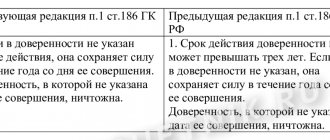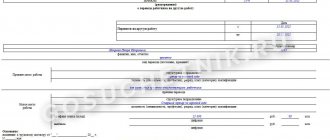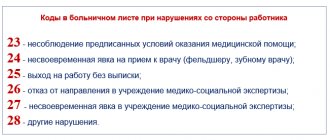In accordance with labor legislation, the employer is obliged to release the employee from work to perform state or public duties.
However, there is no specific list of such responsibilities and one must be guided by other federal laws. As a result, misunderstandings often arise: the employee does not come to work, as it seems to him, for good reasons, and the employer fires him for absenteeism.
In the article we will tell you in what cases the employer is obliged to let the employee go and what procedure must be followed, how and by whom the time of his absence from work is paid, and we will consider one of the most common reasons for the absence of an employee from work, which relates to government duties - his appearance in court.
Terms and procedure for serving a subpoena
The procedure for serving a subpoena is not complicated, but it does have some peculiarities. The parties who want to be involved in the trial must be notified in writing of the need to appear at the hearing at the specified time.
You can notify the defendant or plaintiff by registered mail, subpoena, telegram, telephone message, personally provide notification to one of the parties with its consent and other means of information, the main thing is that confirmation of receipt of the notification is provided in writing.
The agenda must be issued to the parties in advance so that they have time to prepare for the meeting. Moreover, there is no specific deadline when the notice must be presented to them.
The law states that notification must be carried out in such a way that the addressee still has enough time to prepare for the case and appear at the meeting on time. If the plaintiff or defendant fails to appear in court, he may ask for a delay in the proceedings if the notice was served just a couple of days before the trial began and the subject did not have enough time to prepare.
The court undertakes to send notices to all entities involved in the process no later than the second day after the judge makes this decision.
Notices are sent to the address that was specified in the case, and if the mail returns it because the party does not live there, then the summons is redirected to the address of the enterprise where the participant in the lawsuit works.
Phone call
A telephone message is one of the most accessible, but also the least provable options for summoning to court. It is difficult to track and confirm the call. It should be noted that the Code of Civil Procedure pays a lot of attention to official notification, but there is no information about situations when we are talking about a telephone call, the fact of which must be proven. All provisions of the code in question, reflecting the procedure for serving a subpoena, lose force in a controversial situation, because the information there is more suitable for subpoenas transmitted on paper rather than by telephone.
Another alternative to informing a citizen is a telegram, which is delivered personally or can be received at the post office. This method is used to notify those who are afraid of the word “agenda”, but do not ignore telegrams. The time of its delivery is prescribed by the postal representative.
Registration of the agenda
The summons is filled out in a special form, which is provided for in Appendix No. 2 to the Order of the Judicial Department at the Supreme Court of the Russian Federation dated December 15, 2004 No. 161.
Filling out this information is mandatory:
- name of the court and full address where the hearing will take place;
- full name and the address of the subject to whom the notice is issued;
- indicates who the subject is called as;
- time and date of the meeting;
- the reason why the recipient is being called.
In such a notice, the subject is warned about the penalties that he faces if he does not appear at the meeting or does not present evidence that he knows about the case under consideration.
When sending a letter to the defendant, you need to attach a statement from the accused party to it, and if it is intended for the plaintiff, then you need to send a copy of the defendant’s explanations, if any.
The official is the recipient if it is intended for an organization or enterprise. In situations where it is necessary to summon a minor witness to the court, he must appear at the hearing in the presence of his parents, and notifications will be sent to the child and parents accordingly.
Enforcement proceedings
The work of bailiffs is often associated with the seizure of property due to non-payment of a monetary debt or fine. If a citizen was absent from the court hearing and did not receive summonses and notices, he has a chance of seeing representatives of the enforcement department in 7 days on the threshold of his home. Officially, after the ruling is made, a seven-day period is given to voluntarily repay the debt or to file an appeal in court (extension of the appeal period).
If it turns out that the court hearing took place without the presence of the defendant and without his knowledge, if you disagree with the decision made, you must urgently contact the court with a request to reconsider the case. During this time the bailiffs will not bother you.
Civil cases considered without the presence of the person responsible for the statement of claim were most often initially opened at the request of banks, the tax service, and collection agencies. In such relatively obvious cases, the guilt of the defendant, who is the debtor, is proven quite simply. In the case of the plaintiff represented by a company whose activities are based on insurance of human life, health and property, the story is different.
Here it is recommended to find out how the office notified the interested parties, and based on what evidence the judge considered the outcome of the case obvious. A civil subpoena is no less important than other types of cases and must be served on the defendant prior to the hearing date to allow time to prepare supporting documentation as evidence.
Payment to an employee for absence due to a court summons
Who pays, how absences due to a summons are paid, and what documents need to be presented for this are of concern to most people who receive such notices. Let's look at this issue in more detail.
An employee who has received an invitation to court is relieved of his direct duties for the duration of the meeting in accordance with Article 170 of the Labor Code of the Russian Federation.
According to this article, the employer is obliged to preserve the employee’s workplace. The state body is responsible for maintaining the employee’s average earnings during this time. However, such compensation is intended for persons who were summoned to court as a witness, expert, specialist, translator, victim or witness.
The table shows the compensation that an employee can receive if summoned to court.
| Privileges when receiving a subpoena | Who provides | Confirmation document |
| Release from direct duties | employer | agenda |
| Maintaining average earnings for the duration of the meeting | civil service | certificate of income from place of work |
| Payment for travel documents if the trial took place in another city | civil service | travel tickets |
At the enterprise, in addition to the summons, you may be required to confirm your participation in the trial, which will indicate the start and end time of the meeting.
In this case, the employer releases you from all duties for the duration of the meeting. If you were called as a plaintiff or defendant, you will not be compensated for this time.
What other documents are there:
- All documents from the “VS” section
- Categories of all standard samples and document forms
What else to download on the topic “VS”:
- Frequent contracts
- All
- Lease agreement for property, transport, real estate, land
- Agreement of donation of property, money, real estate
- Loan agreement, interest-free loan, microloan
- Agreement for the sale and purchase of goods, real estate, securities
- Agreement for the exchange of housing, land, securities
- Agreement for the provision of services, outstaffing, outsourcing
- Contract of carriage, chartering, transport expedition
- Contract: household, construction, subcontract
- Agreement of storage, liability
Actions of the court if one of the parties fails to appear at the hearing
A party who, for any good reason, is forced to miss a court hearing is required to notify the court in advance. In this case, there are two options:
- It may be proposed to consider the specified case in the absence of the called party, with the opportunity to receive a decision at your address.
- A request may be made to change the date of the trial.
The court cannot consider the case if the party has not received a summons, in which case the hearing is postponed.
If any of the summoned persons (except the plaintiff and the defendant) are not present at the meeting, then the judge can still listen to the remaining participants in the case and only then decide whether there is enough information to continue the proceedings or whether it is worth postponing the case for some period.
If one of the parties who has officially received the summons refuses to appear at the meeting without indicating a valid reason in advance, a fine may be imposed, the amount of which will be up to 10 times the minimum wage.
If the person does not appear in court a second time, then he is already threatened with arrest. This penalty applies only to witnesses, experts, translators and specialists.
Such actions may be considered failure to testify, which is a criminal offense.
In criminal proceedings, a fine may be issued to any participant in the trial if he fails to appear at the hearing without a valid reason. In this case, the monetary penalty is up to 2,500 rubles.
Civil case
Since 2002, in the Russian Federation, thanks to the Civil Procedure Code, it has become a legal opportunity to conduct a hearing of a case without the personal presence of both the author of the statement of claim and the defendant, in certain cases even without representatives of both parties. Of course, in practice, each participant must be notified of the planned meeting, but he has the right not to attend it if there are good reasons for this.
After some time, additions were made to the article: the trial can be held without the defendant 3 times in a row, and at the fourth meeting the case can be considered without him.
The interested parties in a civil case are both the plaintiff, who knows about the date of the trial from the clerk, and the defendant, who theoretically received a subpoena. Some courts (for example, Primorsky) practice remote access to information and post information on their special website. As a result, the defendant is often left in the dark and risks knowingly losing the case.
Failure to receive a summons
As stated earlier, the judge must send notices to all parties involved no later than the second day after making the decision. If notification of receipt is not received within a certain time, the meeting will be rescheduled.
What should you do if a letter has been sent to your address with the results of a process in which you should be a participant, but you have not received a summons?
In such a situation, you need to contact the court in which the hearing took place and familiarize yourself with the case materials. Subpoenas that were sent to you but not received by you should be attached to the case materials.
You may submit a written request to vacate a default judgment no later than 30 days after you receive the letter of judgment if you believe your testimony will significantly affect the judgment.
If the specified period has expired, then additionally attach a request to extend the period for filing your petition, indicating a valid reason.
If you are planning to submit such a petition, then you should attach documents confirming that you did not receive the notice. Since in most cases subpoenas are sent by registered mail with notification, you can make a request to your post office with a request to confirm the fact that no registered letters were sent to your actual residential address. It happens that a letter may be lost in the mail. Lost parcels and letters are not a rare occurrence.
If you receive a subpoena, do not be afraid or panic.
First, study the case materials that were provided to you. Be sure to sign for receipt so that there are no additional problems. If you still have unanswered questions, contact the court for additional information so that you can behave correctly in court.
Check your schedule to see if you have any important work planned for that day, and also notify your employer that you will be absent from the workplace during this period. Take the summons seriously and be sure to appear at the meeting, because, perhaps, the decision in the case will depend on your testimony.
What can be learned from the contents of the court order?
After reviewing the contents of the order, you can decide to file an objection or cassation appeal. If you agree with the demands of the creditor, then you can completely repay the debt without waiting for the cards to be written off, as well as the unpleasant procedures of inventory, seizure and sale of property.
In the contents of the order you can find out:
- name of the judicial authority;
- number of the case (order), date of the judicial act;
- information about the creditor and debtor;
- essence of the requirement;
- the amount of the principal debt, the amount of penalties already accrued;
- details for paying the debt (for example, bank account number).
The order is always certified by the seal and signature of the judge. In this case, the original document is stored in the court case materials, and the claimant receives a certified copy.
Hiding from notice
In administrative cases, they are faced with the defendant’s reluctance to receive subpoenas. This approach to the case is chosen to avoid administrative liability due to failure to appear. The statute of limitations for consideration of such hearings is 2 months, and if during this period the case through the fault of the defendant was not brought to completion, the latter wins. Amnesty for an administrative violator occurs in case of failure to appear for a good reason, but if the hearings have already been officially scheduled, on the fourth day the judge will make a decision without the defendant.










